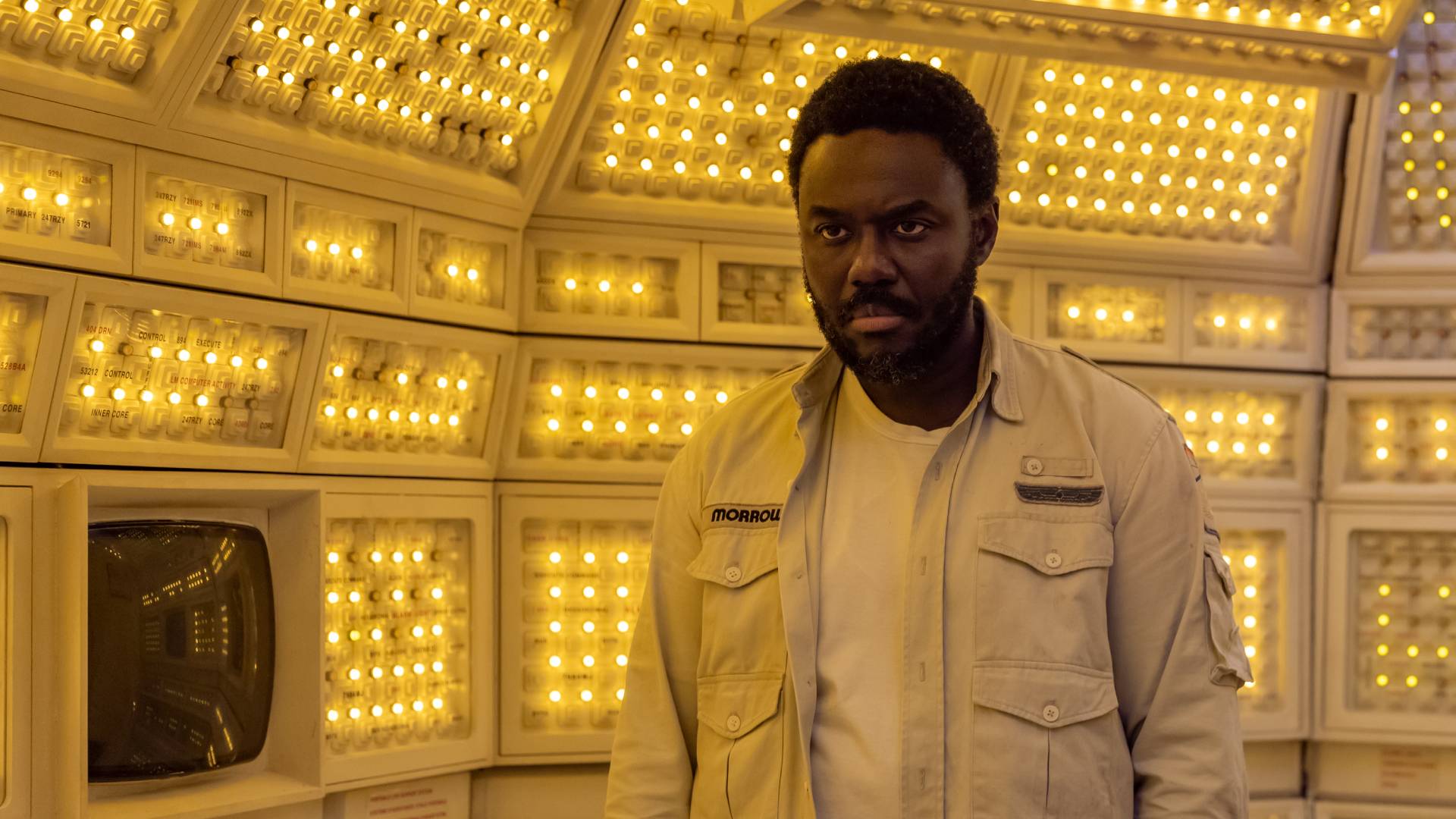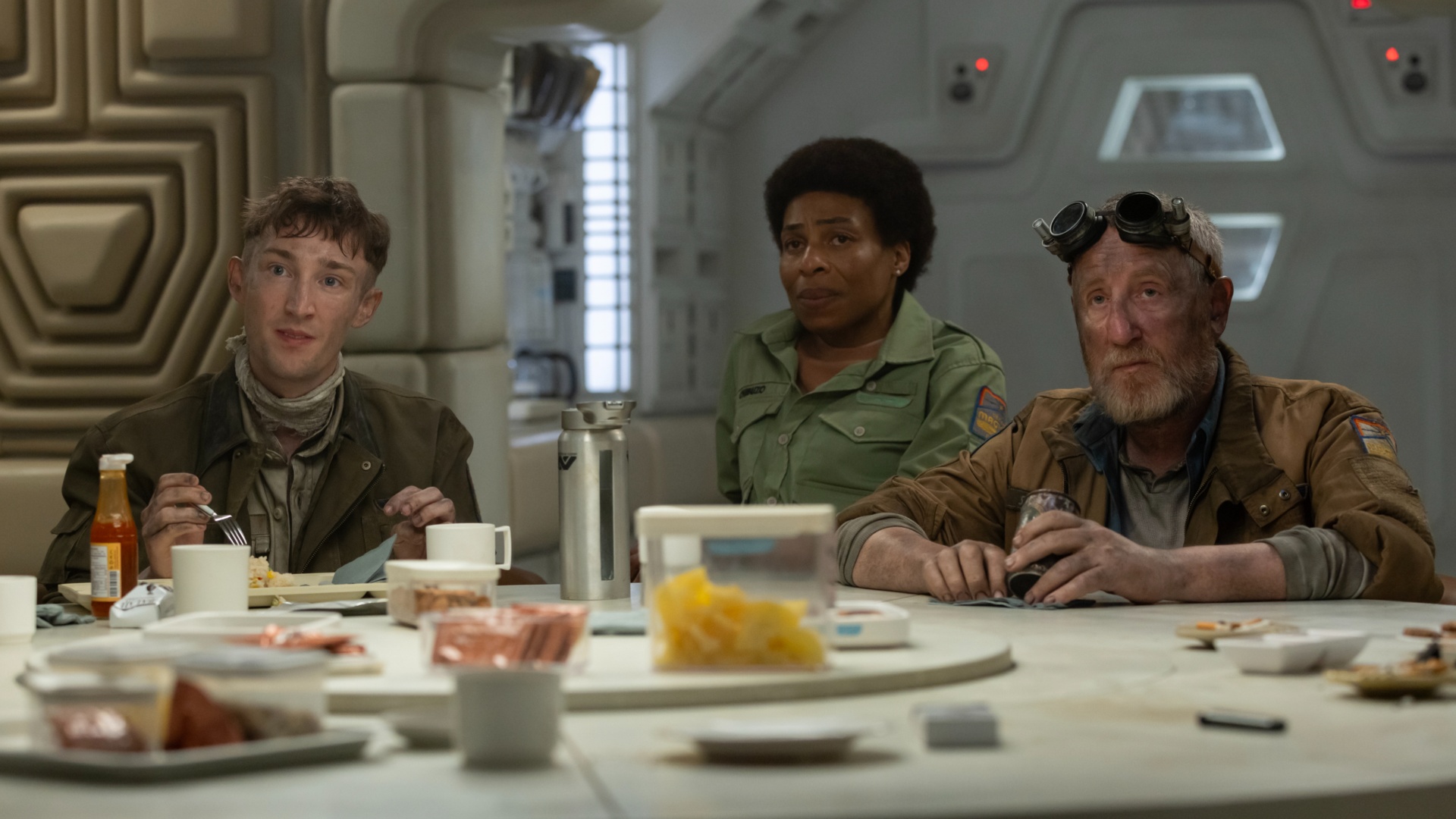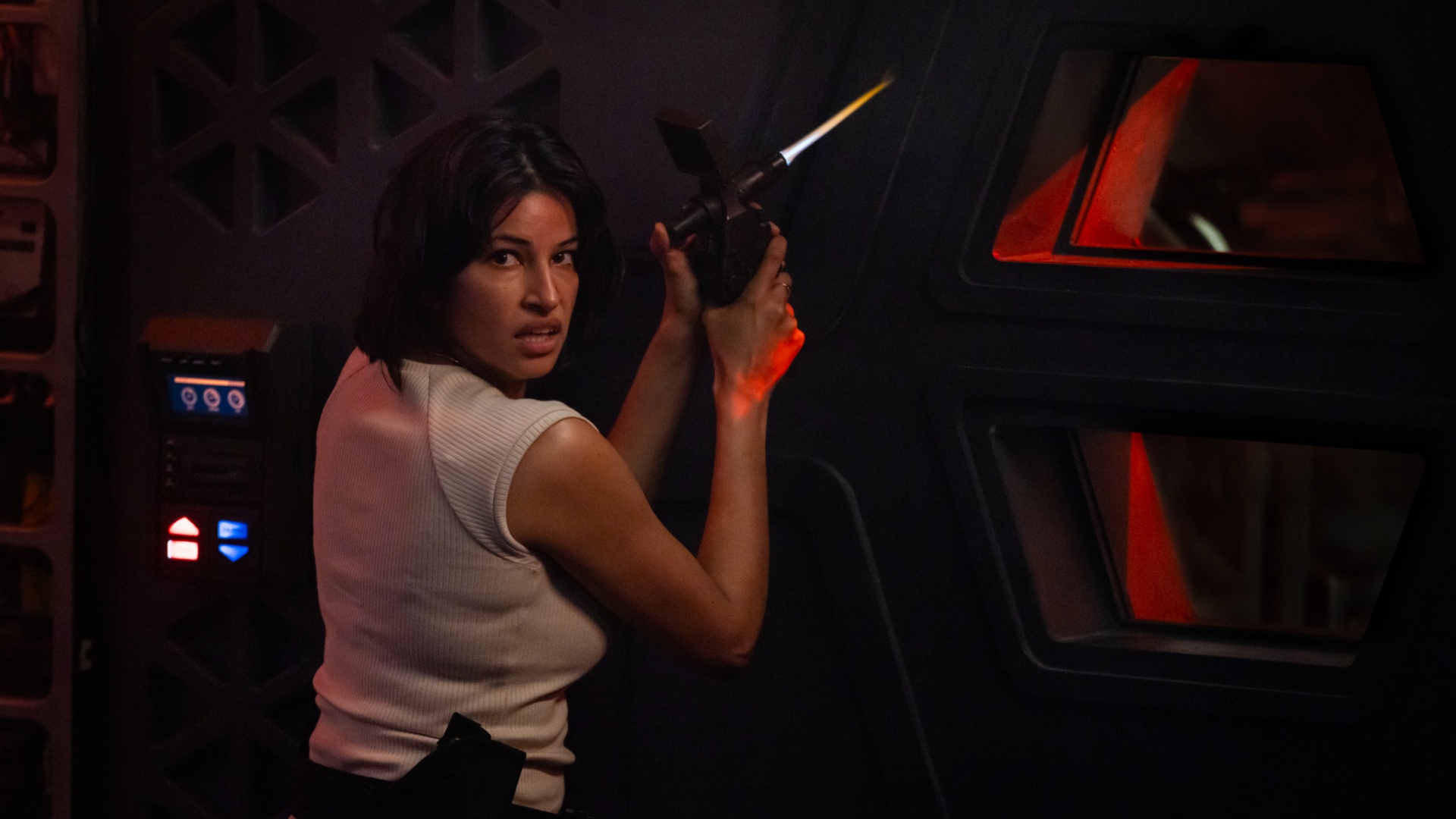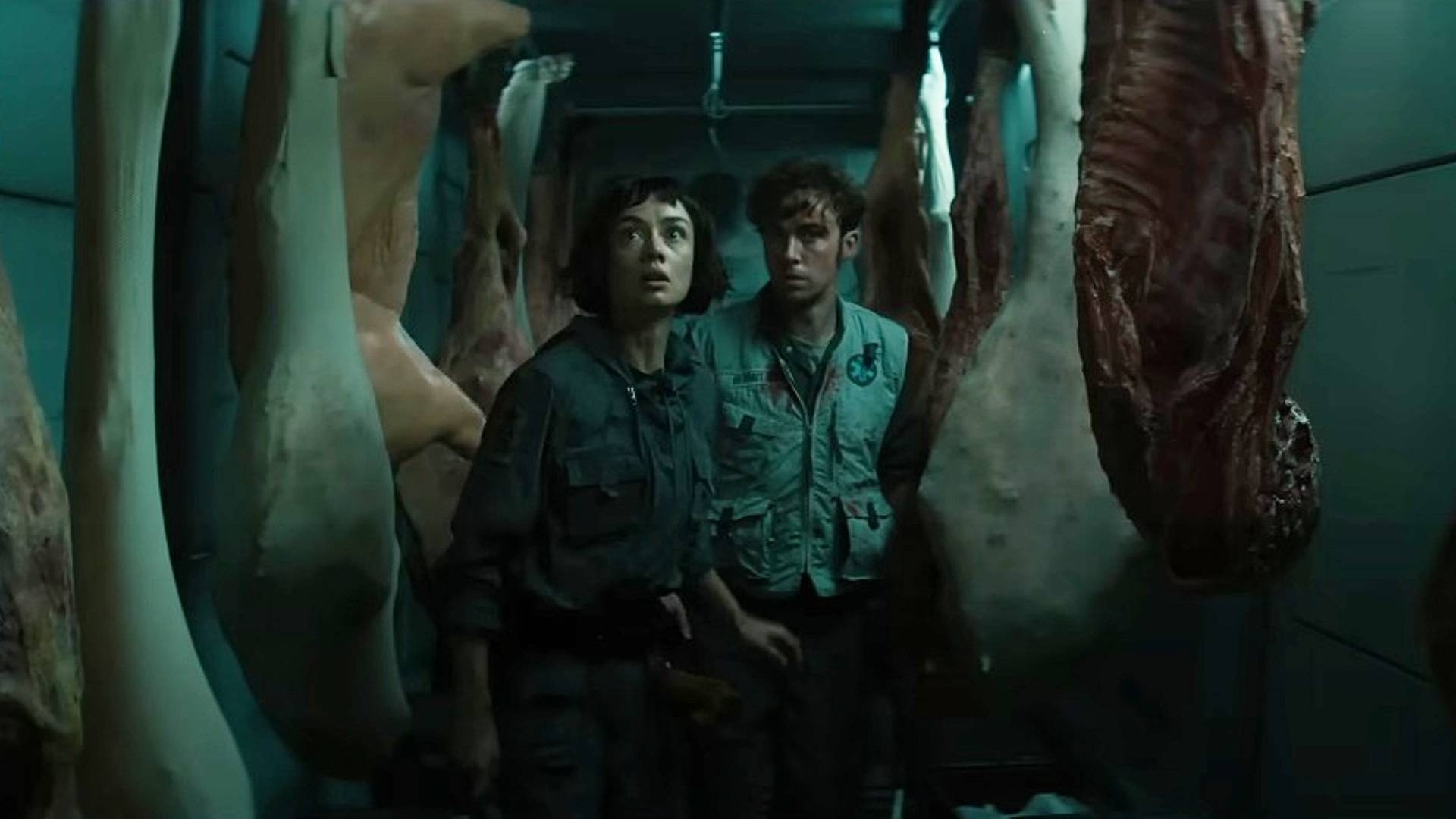Alien: Earth episode 5 isn't quite feature-length, but I think it's the best Xenomorph movie since Aliens
Opinion | Our writer argues that the latest episode of Alien: Earth is the best installment in the franchise since James Cameron's '80s sequel

Can an episode of TV be a movie? The answer, pretty definitively, is "no, they’re two entirely different things." But it’s hard not to watch the hour-and-a-bit-long fifth episode of FX and Hulu’s Alien: Earth, titled 'In Space, No One…' and not think directly of the first 1979 Alien movie. And, even beyond that, it’s pretty clear that Alien: Earth episode 5 is the best Alien movie since 1986’s Aliens. Before you read any further, be warned: there are spoilers for Alien: Earth episode 5 ahead.
Over the course of the hour, we flash back in time to find out what caused the Weyland-Yutani spaceship, the Maginot, to crash on Earth. 17 days from returning home, cyborg security officer Morrow (Babou Ceesay) is woken from cryosleep only to encounter a series of escalating disasters. Two crew members, including the captain, have been downed by face-huggers. There’s a Xenomorph loose on the ship. And, even worse, it seems like someone is actively sabotaging the mission, turning the ship into a "missile".
If you’ve been following along with the series, Boy Kavalier (Samuel Blenkin) hired Maginot crewmember Petrovich (Enzo Pilenti) to sabotage the ship in order to crash it into New Siam, and take control of Weyland-Yutani’s aliens. Despite what we’ve seen previously, none of this was an accident at all…
More than homage

Things get steadily worse as the increasingly panicked crew accidentally lets loose Species 19, the bloodsucking alien Ticks we saw in previous episodes, which leads to an outbreak and multiple other deaths. And thanks to that distraction, the ship’s scientist Chibuzo (Karen Aldridge) also accidentally releases T. Ocellus, aka The Eye, the horrible octopus eyeball creature. So, lots going on here, and things continue to spiral out of control until everyone on board except Morrow is dead, as seen in the series premiere.
It’s hard not to consider this episode an homage to Alien, despite the extra elements like the bloodsucking Ticks and The Eye. The Maginot looks like the Nostromo, the frequent trips to visit Weyland-Yutani's AI Mother are extremely similar to the ones from the original movie, and everything from the initial crew meal to the disastrous one where junior engineer Malachite (Jamie Bisping) drinks a thermos full of Tick larvae has analogues in the 1979 film. There’s no visit to an alien planet or a mysterious Space Jockey. But everything from the ship’s cat to Morrow wandering around in his underwear fondly recalls the Ridley Scott feature.
Other than riffing off an iconic movie, this episode is, in and of itself, a classic prestige TV format gambit. There’s almost always a mid-to-late season episode that shakes up the format, either to jump back in time and fill in historical gaps or to focus in on a character or two in an unexpected way. Think 'Long, Long Time' from The Last of Us season 1, or 'The Fly' from Breaking Bad. Like 'In Space, No One…', these departure episodes may feel like their own, singular thing, and stand out because of it. They’re not movies, and 98% of the time, they’re not bottle episodes, despite what everyone on the internet calls them. But at the same time, they elevate an overall season of television by providing a break in the rhythm, a refresh from something that might have become, at the very worst, stale or predictable – though more often that high point is a peak that the rest of the season can strive towards.
It’s also, like I said earlier, not a movie, and a departure like this serves the overall season. But it also works as a singular entity, and by comparison to the rest of the Alien franchise, it’s pretty fantastic. One can certainly argue that it ranks with Alien and James Cameron’s superlative sequel – for my money, it’s not quite there merely because it’s homage – but compared to the mixed bag we’ve gotten since 1986, it’s definitely up there.
Course correction

As an Alien Franchise Apologist, it’s easy to see what works about every subsequent entry in the series, and where they went wrong. Alien 3 was a famously troubled production that nevertheless shows off David Fincher’s darker impulses with some murky morality set on a prison planet. Alien: Resurrection fell foul of the warring impulses of the idiosyncratic director Jean-Pierre Jeunet and the more populist writer Joss Whedon. Ridley Scott took the movies back in wild directions with Prometheus and Alien: Covenant, both of which expanded the mythology in controversial ways. And Alien: Romulus went too far into the realm of homage with its eerie Ian Holm deepfake, aggressive need to connect to the other movies, and inability to bring together themes of birthing trauma. There’s also the Alien vs. Predator movies, but we don’t need to talk about them here.

Point being, it’s relatively easy to point out how Alien: Earth is the best since 1986 because everything else hasn’t 100% worked (though your mileage may vary). But the fifth episode of the TV series does work, and a lot of that is down to how it is part of an ongoing TV show, which is aggressively telling its own story that is not beholden to what has come before.
Rather than the slavish devotion to continuity that was threaded through Romulus, or the nose-thumbing of Prometheus, Alien: Earth is perfectly straddling the line, using the best elements of what’s come before and remixing them in a way that feels wholly fresh and new. That all comes to a head in this fifth episode, which stands as its own as a riff on Alien, but also expands those intriguing flashes from the premiere, the emotional journey of Morrow, and gives us necessary backstory about Boy Kavalier and the Maginot crash that changes how we view the previous episodes, as well as the ones coming in the final three hours of the season.
Could you watch Alien: Earth episode 5 as its own, standalone mini-movie? For sure, and that’s what’s so brilliant about it. But that extra layer of continuity bumps it up a notch from the taut, claustrophobic space horror that’s been present in the franchise since 1979. It’s something that could only exist in the ongoing, episodic story landscape of TV – even if it is the best thing we’ve gotten from the Xenomorph and friends since Aliens blew the whole idea of the franchise wide open.
Alien: Earth is currently streaming weekly on Hulu and Disney Plus. Make sure you never miss an episode with our Alien: Earth release schedule, or check out our Alien: Earth review for more on the show.

Alex Zalben has previously written for MTV News, TV Guide, Decider, and more. He's the co-host and producer of the long-running Comic Book Club podcast, and the writer of Thor and the Warrior Four, an all-ages comic book series for Marvel.
You must confirm your public display name before commenting
Please logout and then login again, you will then be prompted to enter your display name.


